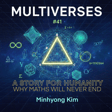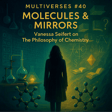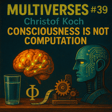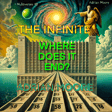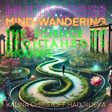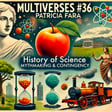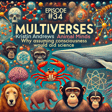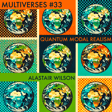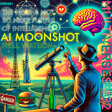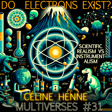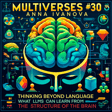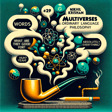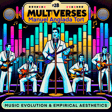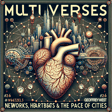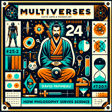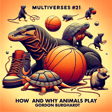
22| Sean McMahon — Astrobiology: what is life & how to know it when we see it?
Life. What is it? How did it start? Is it unique to Earth, rare or abundantly distributed throughout the universe?
While biology has made great strides in the last two hundred years, these foundational questions remain almost as mysterious as ever. However, in the last three decades, astrobiology has emerged as an academic discipline focused on their resolution. Already we have seen progress, if not aliens. The success of the space telescope Kepler in discovering exoplanets may come to mind. Equally important is the work to understand how we can demarcate biological from abiotic patterns — when we can be sure something is a genuine biosignature (evidence of life) and not a biomorph (looks like life, but is the product of other processes).
Our guest this week is Sean McMahon, a co-director of the UK Centre for Astrobiology. Sean takes us through the field in general and gives particularly thoughtful insights into these epistemological problems. He also cautions that we may need a certain psychological resilience in this quest: it may require generations of painstaking work to arrive at firm answers.
Corrections
In the intro, I say Enceladus is a moon of Jupiter. Nope, it's one of Saturn's moons.
Milestones
(00:00) Intro
(3:22) Start of discussion: astrobiology as where biology meets the physical science
(6:00) What is life?
(9:30) Life is a self-sustaining chemical system capable of Darwinian evolution — NASA 94
(10:44) Life is emergent, therefore hard to define
(12:00) Assembly theory — beer, the pinnacle of life?
(14:22) Schrodinger & DNA
(15:45) Von Neumann machine behavior as defining life
(17:00) All life on Earth we know comes from one source
(22:55) How did life emerge on Earth
(26:40) The most important meal in history — emergence of eukaryotes
(28:20) The difficulty of delineating life from non-life
(33:30) How spray paint looks like life
(35:30) ALH84001
(39:00) How false positives invigorated exobiology
(44:05) The abiotic baseline
(46:30) Chemical gardens
(49:30) Is natural selection the only way to high complexity?
(54:55) Sci-fi & life as we don’t know it
(58:45) Kepler & exoplanets
(1:00:00) It may take generations
(1:03:40) Sagan’s dictum: Extraordinary claims require extraordinary evidence
(1:08:50) Technosignatures: Gomböc, Obelisk, not Pulsar
(1:12:00) Can we prove the null hypothesis (no life)
